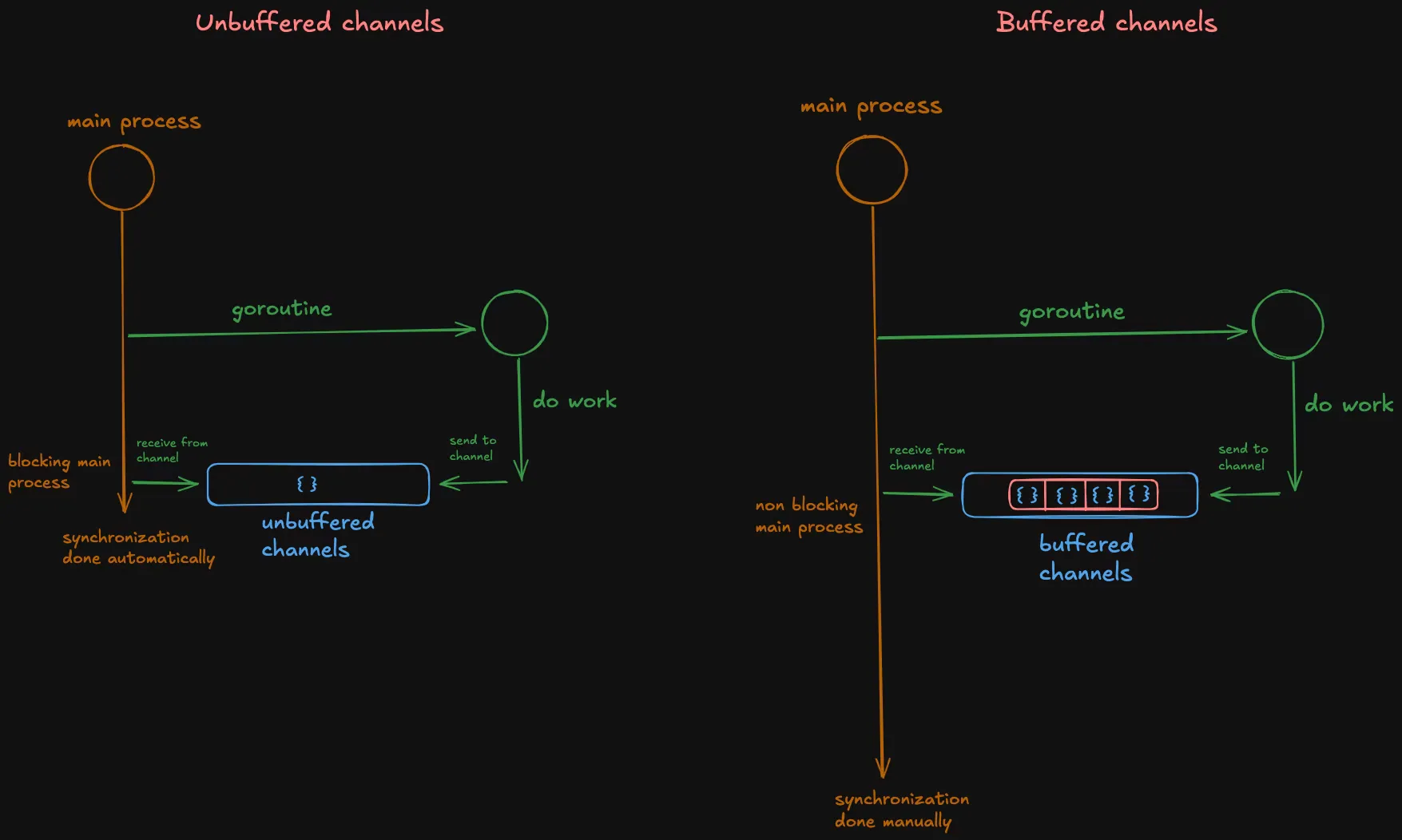Unbuffered vs Buffered channels

Unbuffered channels
- By default channels are unbuffered, for a sender there should be a corresponding receiver
- There’s no need for any other synchronization mechanism like mutexes as for each sender there’s only one receiver
- By default unbuffered channels are blocking
- You can send values into channels from one goroutine and receive those values into another goroutine
- Do not communicate by sharing memory instead share memory by communicating
package main
import (
"fmt"
"time"
)
func main() {
// unbuffered channels have 0 cap by default
oneChef := 0
order := make(chan int, oneChef)
customers := []int{1, 2, 3, 4, 5}
go func() {
for c := range customers {
order <- c
fmt.Printf("Placed order for customer %d\n", c)
}
close(order)
}()
for o := range order {
fmt.Printf("Preparing order for customer %d\n", o)
time.Sleep(1 * time.Second)
fmt.Printf("Ready order for customer %d\n", o)
}
}
Buffered channels
- Buffered channels accept a limited number of values without a corresponding receiver for those values
- Buffered channels allow a specified number of values to be sent without blocking until the buffer is full
- Its like creating a buffer inside channel where all data will be kept temporarily until its received by receiver
- Buffered channels have to be synchronized manually i,e main process will not fail even if receiver doesn’t exist
package main
import (
"fmt"
"time"
)
func main() {
// buffered channels with 2 cap
threeChefs := 2
order := make(chan int, threeChefs)
customers := []int{1, 2, 3, 4, 5}
go func() {
for c := range customers {
order <- c
fmt.Printf("Placed order for customer %d\n", c)
}
close(order)
}()
for o := range order {
fmt.Printf("Preparing order for customer %d\n", o)
time.Sleep(1 * time.Second)
fmt.Printf("Ready order for customer %d\n", o)
}
}
